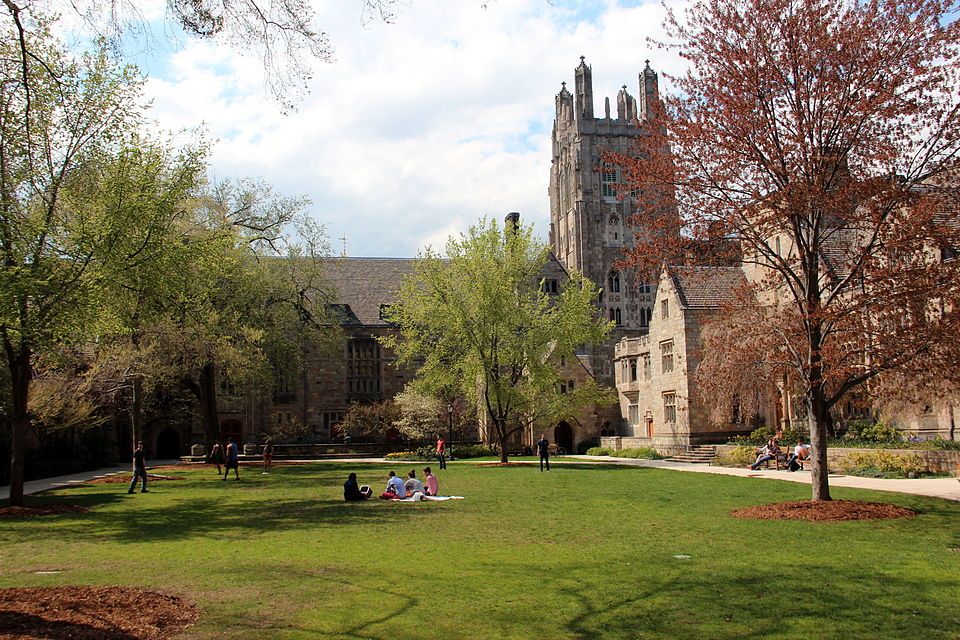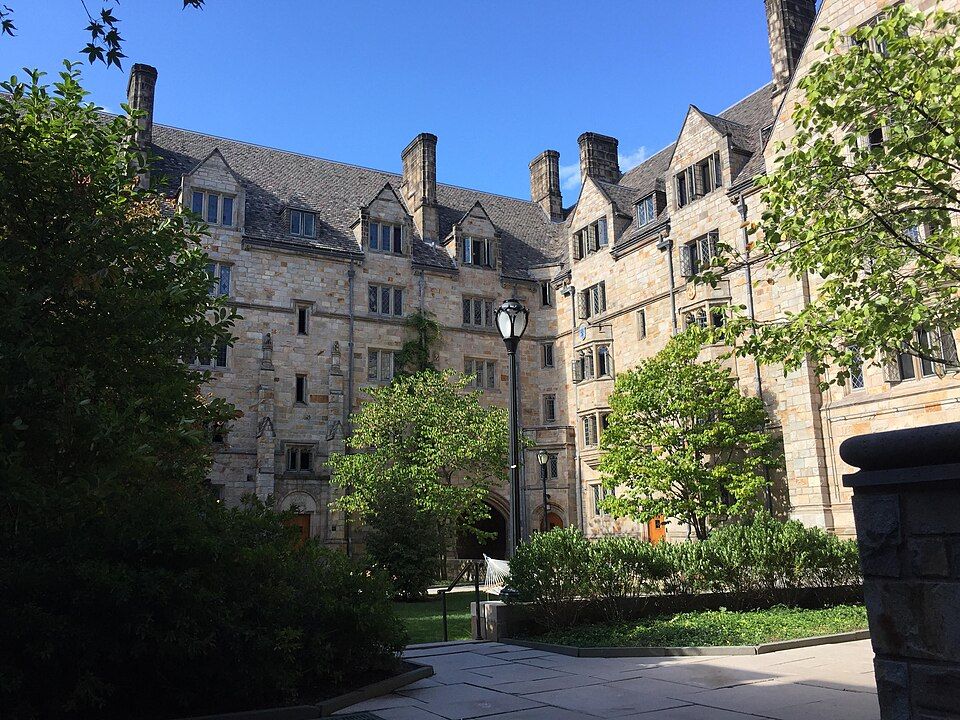
How to Get Into Yale: Expert Tips to Ace Your Application
Yale is one of the most competitive Ivy League schools - and that’s saying something! Learn expert tips from John Morganelli for getting into this highly competitive school.

By Namkota
Yale University belongs to the “Top 5” Tier of universities in the United States, often abbreviated as HYPSM (Harvard, Yale, Princeton, Stanford, MIT), making it one of the most selective schools in the country. Its acceptance rate is typically less than 4%. If you’re considering applying to Yale, this blog will serve as a guide to its admissions requirements, as well as an overview of which types of students do well at the school to help you determine if it should be on your college list.

By Nick Allen
Why Choose Yale?
Many students (and parents) are drawn to the prestige of Yale as an institution. And there’s no doubt it is an impressive school with a storied history. Yet there are specific reasons to choose Yale that will make it a good fit for some and poor fit for others.
For starters, Yale is known for its intellectual culture that values reflection, interdisciplinary interests, and curiosity. It is known for cultivating students who are:
- Thinkers first, careerists second, emphasizing curiosity and academic exploration over linear pre-professional tracks.
- Writers, researchers, and conversationalists: the culture prizes dialogue, debate, and essay-based thinking.
- Drawn to complexity. Yale favors students comfortable with philosophical tension and moral ambiguity.
Yale is a great fit for students whose academic ethos is defined by exploration across disciplines, a love for writing and research, and a desire to engage in meaningful civic or ethical conversations.
Second, Yale has some strong structural advantages. One, it’s a tight knit community. Yale’s 14 residential colleges offer intellectual sub-communities that promote intimate discussions and strong peer-to-peer learning. And its community is collaborative, not competitive, making it ideal for students who thrive in intellectually supportive environments. Two, it offers a lot of interdisciplinary freedom. Students can double major across departments, even blending humanities and sciences (e.g., Ethics, Politics & Economics or Cognitive Science). Yale’s Directed Studies Program offers a rigorous great-books curriculum for first-year students craving a deep dive into the Western canon. And three, it’s strong in public service and global citizenship. With offerings like the Jackson School for Global Affairs, the Yale Law School pipeline, and the Yale Prison Education Initiative, Yale attracts students with strong social justice or policy-based interests.
Third, Yale offers extraordinary undergraduate research access, with over 800 funded research positions and personalized faculty support. It’s a place where students can customize independent study paths, work in world-class labs, or pursue original scholarship as early as freshman year.
And lastly, its institutional ethos “Lux et Veritas” - Light and Truth - embodies its mission to produce not just capable students, but thoughtful citizens. It expects its students to contribute to the world beyond academics, and reflect on how knowledge relates to human responsibility, ethics, and progress.
This all means that students who would enjoy Yale tend to be:
- Philosophical engineers or mathematically-inclined artists—those who don’t want to choose between passion and purpose
- Investigators—students who ask "why" as often as "how," and who crave interdisciplinary learning
- Writers and thinkers—students who value the essay, enjoy research for its own sake, and often speak in "thesis" form
- Community builders—students who see themselves as part of larger civic or ethical frameworks
- Politically and socially conscious—interested in law, governance, equity, public policy, or human rights
If this sounds like you or your student, keep reading to discover what you’ll need to do to get into Yale.
Understanding Yale's Admissions Requirements (aka How Hard Is It to Get Into Yale?)
As we mentioned at the start, Yale is one of the most difficult schools to get into in the country - and the world for that matter. Getting into Yale takes academic excellence, strategic engagement, and a strong narrative.
Academic Excellence
What does academic excellence mean for Yale-hopefuls? You’ll need a minimum of the following:
- An SAT score of 1500+ or an ACT score of 34+
- Be in the top 5% of your class
- Show demonstrable depth in 2-3 academic areas
“Demonstrable depth” is not just about rigorous coursework - though that’s expected, of course - but showcasing your intellectual curiosity and initiative. There’s no one right way to do this, but you should have something to show for your effort (hence the “demonstrable” part). This could include independent research, written or advocacy deliverables (like an Op-Ed), or thought leadership work (like hosting a community panel).
If you need support, our college admissions experts would be happy to help you find the right kind of deliverable for your application, such as a research mentorship.
Extracurricular Involvement and Leadership
Your extracurricular involvement should be strategic if you want to get into Yale. We always encourage students to start with their passions, but not to leave it there. There is definitely a strategy piece to elite college admissions.
If this is the first time you’ve stumbled across our blog, we’d encourage you to read this piece which explains the importance of a clear application narrative - and ethos - that acts as a throughline throughout your application.
Here’s what we recommend for your involvement and leadership activities:
- In-school activities must reflect leadership through contribution - not just title - and be connected to your academic narrative.Out-of-school engagement should be contextually relevant and ideally aligned with your intellectual goals.
- Objective Achievement (e.g., awards, publications, competitions) in any field of interest, particularly at a regional level or higher, is especially valued.Research tied to a personalized or localized research question that foreshadows future academic pursuits.
Holistic Review Process
Beyond the “numbers” part of admissions, Yale values:
- Curiosity over conformity. Students who ask good questions and seek intellectual tension rather than polished answers.
- Breadth with depth. Engagement across disciplines, but with a core academic “throughline.”
- Civic-minded leadership. Students who elevate their community through advocacy, service, or intellectual contributions.
Ultimately, Yale seeks students who combine elite academic ability with distinctive intellectual identity.

By Helpfullguy99
Increasing Your Chances
We don’t want to just tell you how hard it is to get into Yale - Google or ChatGPT can do that - we want to see you succeed if that’s your goal. IVY’s Director of Admissions, John Morganelli, is an expert at elite college admissions. Here’s what he recommends (you’ll recognize some of the tips from what we talked about above).
1. Start with a Strategic Major + College Type
Yale’s structure offers flexibility, but you still need to apply through a clearly defined academic lens. The College of Arts & Sciences is the default for most applicants, but *your* strategic major must be:
- Narratively aligned with your past work,
- Departmentally accessible (i.e., not oversubscribed like Political Science or Pre-Med unless you bring a novel angle), and
- Framed through a research question.
Morganelli Pro Tip: Consider interdisciplinary or lower-volume departments like Ethics, Urban Studies, or Linguistics if your narrative supports it. Strategic major selection is often more important than your actual interest - it’s about access and ethos.
2. Craft a Cohesive Application Narrative
Every part of your application should support a single application narrative. This is not a theme or major, it’s your ethos, your intellectual spine, and the answer to the question: “Who are you becoming, and why?”
Use the PAGE framework:
- Perspective: What do you believe?
- Activity: What have you done to express that belief?Goal: What do you want to explore/study next?
- Ethos: How do all of these form a compelling story?
If your essays, activities, and additional info don’t point to the same narrative, revise them until they do.
3. Develop a Personalized Research Question
Yale deeply values intellectual investigation and student-initiated inquiry. Your research question should:
- Be tied to a local issue or personal experience
- Reflect your intellectual values and field of interest
- Foreshadow your academic future at Yale
Avoid shallow questions or paid mentorship fluff (you won’t find fluff in our research mentorship program!). Instead, center curiosity, not conclusions.
Morganelli Pro Tip: The question matters more than the answer. If it reflects authentic tension or complexity, you’re on track.
4. Include a Tangible Deliverable
Yale loves students who go beyond school walls. This could mean publishing an op-ed on your research, designing curriculum or workshops, building a prototype, launching a local project - or a lot of other things. What matters is that you show Yale that you don’t just think well, you also contribute well.
5. Use the Personal Statement to Show Inner Voice
For Yale, your Common App essay should:
- Start in the moment and end with reflective connection
- Show, not tell (use vivid storytelling, layered meaning)
- Lean investigative, not performative. Yale readers want curious, reflective students, not résumé narrators.
Avoid cliché “I learned perseverance” essays or high-stakes trauma stories unless they reveal intellectual self-awareness.
6. Yale-Specific Supplements Must Show Intellectual Fit
In your “Why Yale” or short responses:
- Mention specific centers, professors, or programs that relate to your research question
- Articulate what you will contribute to classroom discourse or community culture
- Emphasize collaboration, curiosity, and complexity: Yale is not looking for showy individualism
Morganelli Pro Tip: Use the “tug and pull” structure to explain how your past work would’ve been deepened by Yale, and how Yale will extend your future goals.
7. Benchmark for Selectivity
We recently talked about benchmarking for college admissions success in the Morganelli Memo (our monthly college admissions newsletter). For Yale, that means the academic requirements mentioned above:
- Aim for 1500+ SAT or 34+ ACT
- Be in the top 5% of your class
- Have 2–3 deeply developed academic area
If scores or GPA are slightly below this, your narrative must compensate dramatically in insight, cohesion, and contribution.
8. Start Early and Refine Ruthlessly
Every element of your application - from major selection to advocacy deliverables - should ideally begin no later than 10th grade. If you’re starting later, it’s still possible, but requires:
- Aggressive narrative consolidation (our college admissions excerpts excel at helping you do this!)
- Smart reframing of existing activities
- Precise thematic clarity
And if you’re starting on time, check out our guides to 9th, 10th, and 11th grade actions to take for elite college admissions.
Final Thoughts and Encouragement
We don’t want to sugar coat it: getting into Yale - or any Ivy League school for that matter - is intensely competitive. There are a lot of bright students itching for the elite college experience, which is why admissions success requires strategy. We encourage you to use the advice in this blog - and the others linked throughout - to educate and empower yourself. And if you need a little extra help - you know where to find us!
Schedule a free consultation with our college admissions team today, or dig into our research mentorship program specifically designed for students looking to showcase their intellectual curiosity.




